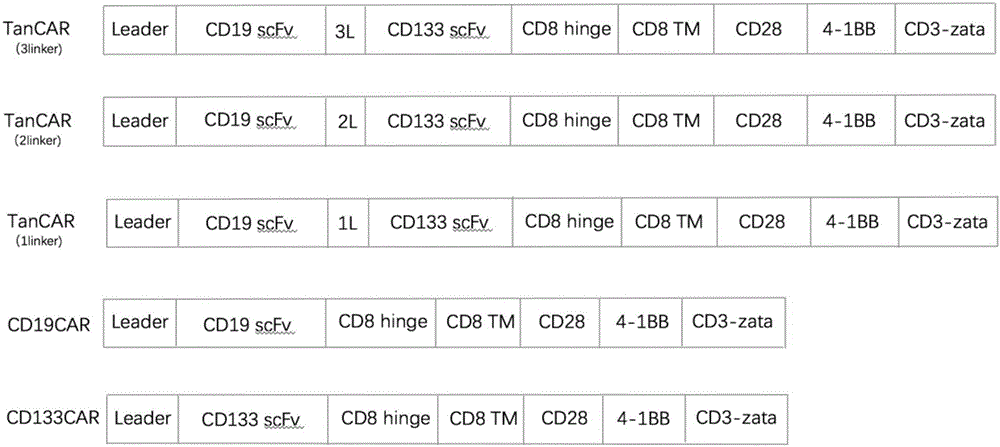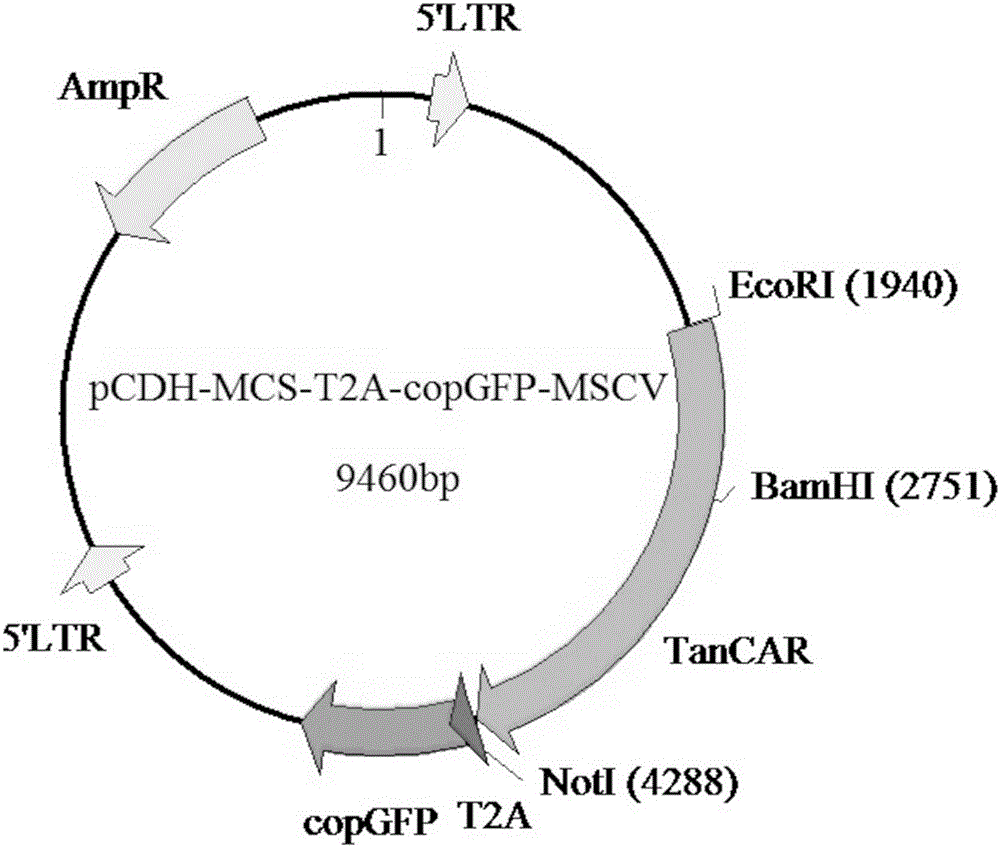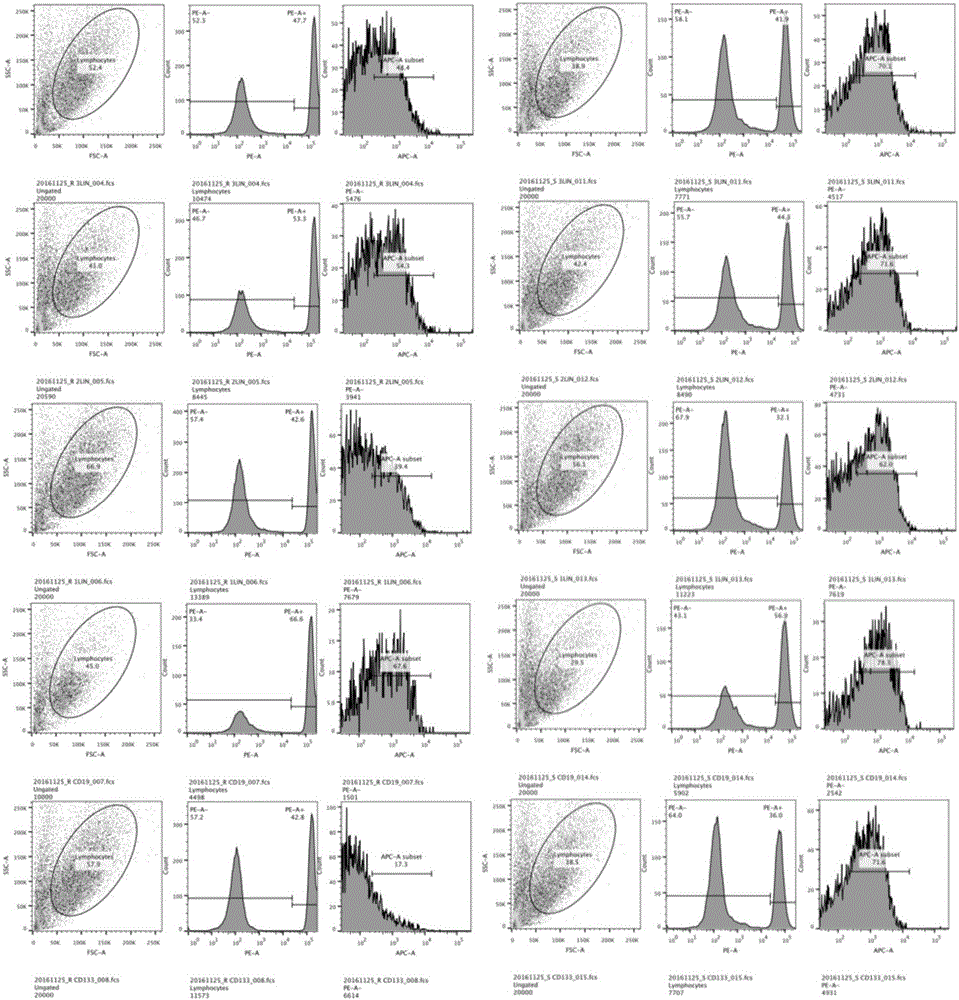Gene of MLL leukemia targeted dual-specific chimeric antigen receptor and application of MLL leukemia targeted dual-specific chimeric antigen receptor
A chimeric antigen receptor, bispecific technology, applied in the field of biomedicine, can solve the problems of decreased immunity and reduced quality of life of patients, and achieve the effects of reducing the killing effect, reducing the probability of escape, and reasonable molecular design
- Summary
- Abstract
- Description
- Claims
- Application Information
AI Technical Summary
Problems solved by technology
Method used
Image
Examples
Embodiment
[0041] The bispecific chimeric antigen receptor targeting MLL leukemia provided by the present invention consists of CD8leader, CD19scFv, linker, CD133scFv, hinge region and transmembrane region of CD8, CD28 intracellular signal region, 4-1BB intracellular signal region , CD3-zata intracellular signal region in series, its structure is as follows figure 1 Shown in (TanCAR(1linker)).
[0042] The nucleotide sequence of the gene encoding the bispecific chimeric antigen receptor targeting MLL leukemia is shown in SEQ ID NO.1, wherein 1-63 is CD8leader, 64-789 is CD19scFv, 790-804 is linker, 805-1536 was CD133scFv, 1537-1671 was CD8hinge, 1672-1743 was CD8transmember, 1744-1866 was CD28 intracellular domain, 1867-1992 was 4-1BB intracellular domain, 1993-2328 was CD3-zata domain.
[0043] (1), construction of pCDH-TanCAR(3linker), pCDH-TanCAR(2linker) and pCDH-TanCAR(1linker) plasmids
[0044] The present invention obtains the cDNA sequence encoding the heavy chain (VH) and ligh...
PUM
 Login to View More
Login to View More Abstract
Description
Claims
Application Information
 Login to View More
Login to View More - R&D
- Intellectual Property
- Life Sciences
- Materials
- Tech Scout
- Unparalleled Data Quality
- Higher Quality Content
- 60% Fewer Hallucinations
Browse by: Latest US Patents, China's latest patents, Technical Efficacy Thesaurus, Application Domain, Technology Topic, Popular Technical Reports.
© 2025 PatSnap. All rights reserved.Legal|Privacy policy|Modern Slavery Act Transparency Statement|Sitemap|About US| Contact US: help@patsnap.com



